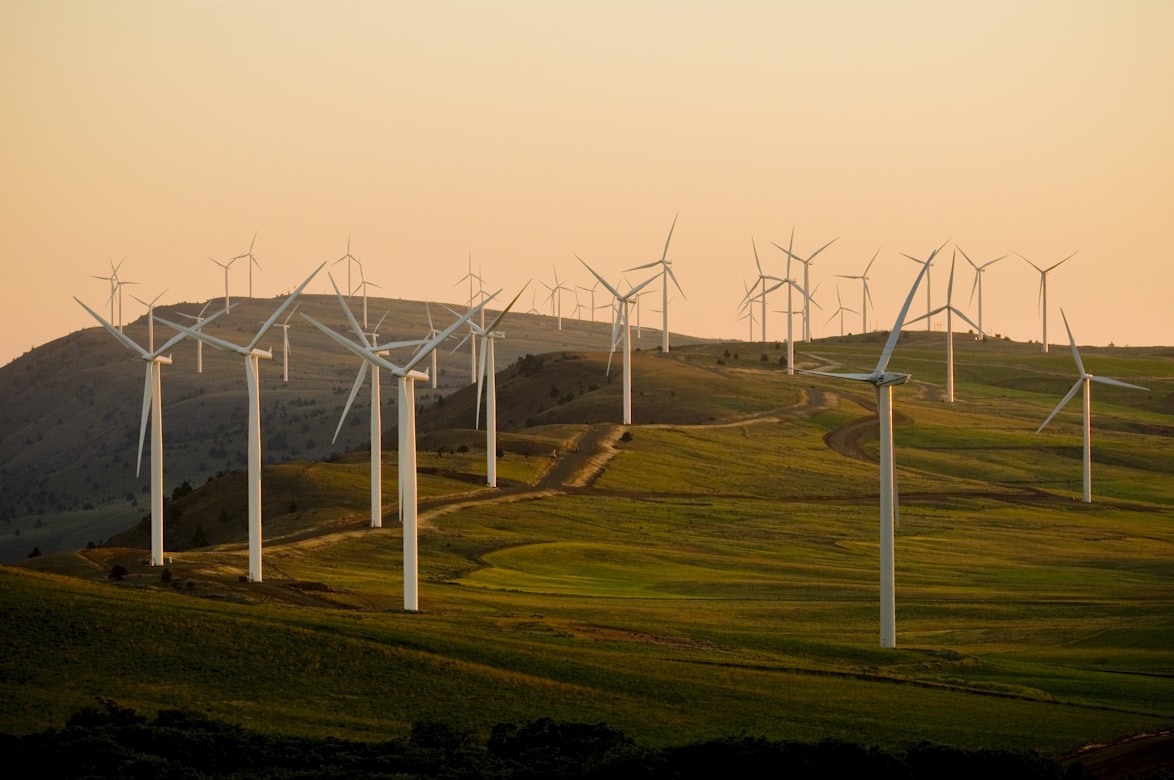- Mar 18, 2022
- 4 min read

Source: American Public Power Association via Unsplash
This week we discuss:
Net-zero During Wartime
Nightmare on Elm Street
The Death of Democracy in Myanmar
Net-zero During Wartime
What happened? In a surprising but welcome move, Boris Johnson’s government declared that a massive expansion in solar, wind and nuclear energy infrastructure is needed for national security reasons.
What does it mean?
The government is expected to unveil a radical new ‘energy strategy’ in the coming weeks as the Russian invasion of Ukraine has exposed the UK’s dependence upon overseas energy supplies.
In the same week he visited Saudi Arabia to discuss oil supplies with Mohammed bin Salman, Johnson wrote in the Telegraph that ‘renewables are the quickest and cheapest route to greater energy independence. They are invulnerable to Putin’s manipulations. He may have his hand on the taps for oil and gas. But there is nothing he can do to stop the North Sea wind.’
Whilst such statements are welcome to the climate-conscious amongst us, they are controversial within the Tory party. A number of MPs, peers and the Net Zero Scrutiny group have challenged the green agenda by attempting to link the cost-of-living crisis with net-zero policies.
But Downing Street is reframing the debate by distancing renewable energy from the “culture wars”. Instead, they are aligning renewable energy with national security and levelling-up – essentially making the case for Britain to be self-sufficient whilst creating future-proofed jobs in the Red Wall and beyond. Not a bad pitch.
Unfortunately, as long as Johnson continues to – in the words of Keir Starmer – go “cap in hand from dictator to dictator” in search of oil and gas, the government’s attempt to reframe the debate on net-zero will fall flat.
Nightmare on Elm Street
What happened?
Chinese developer R&F properties have been forced to offload the Vauxhall Square site in Nine Elms for a nominal £1, taking a £62m loss on the project.
What does it mean?
Nine Elms is quickly becoming the undoing of Chinese property giants, with a growing list of developers running into trouble in the capitol.
In the first half of the decade, with David Cameron and Mayor Boris Johnson courting property investment, Chinese investors poured into the UK. The building projects were intended to serve as a home for a multitude of up-and-coming Chinese businesses, eager to establish their presence in London, and strengthen Anglo-Chinese ties.
However, the situation now, ten years on, paints quite a different picture.
China has been facing a domestic property crisis for several years now, which is only set to intensify this year as companies such as Evergrande face debt repayments. The R&F sale is the latest sign that these troubles are being felt beyond China’s borders, with UK real estate deals by mainland Chinese investors plunging by almost 88% in the past five years.
Real estate is just one area where a cooling in Anglo-Chinese relations has been felt. Huawei Technologies had pledged to invest £1.3bn to expand UK operations until the UK Government announced a ban on the technology, and the fate of China General Nuclear’s £20 billion stake in the Sizewell C nuclear plant in Suffolk remains uncertain.
At a time when UK businesses are desperately removing themselves from deals with Russian companies, a slowdown in Chinese investment probably isn’t a such bad thing.
The Death of Democracy in Myanmar
What happened?
A year after the military coup in Myanmar, the UN has issued its first comprehensive report concluding that the ongoing stream of violence being committed by the military junta amounts to war crimes.
What does it mean?
Myanmar has seen its fair share of atrocities and political false dawns.
The 2010 elections ushered in a new era of civilian government, leading to a decade of liberalisation led by Aung San Suu Kyi. The British-educated leader received international recognition for her policies allowing for greater civilian liberties, but this work was entirely undone after she failed to intervene in the genocide of Rohingya Muslims, carried out by the military.
Ms Suu Kyi was subsequently sidelined by the military who claimed ‘irregularities’ in the 2020 election. Soon after, she was overthrown in a move that has unsurprisingly led to the severe human rights abuses now being recognised by the UN.
Aung San Suu Kyi and Myanmar’s case shows, as Derek Mitchell, the former US Ambassador to Myanmar has put it, that the West should not ‘endow people with some iconic image beyond which is human’. Indeed, the multi-ethnic region has a complex history with leaders navigating a distinctly different political sphere.
So, while the reasons behind the terror may not yet be fully understood, the UN’s recognition of the horrific violence provides some much-needed perspective. In light of Russia’s invasion of Ukraine and the scenes we are witnessing in Myanmar, it’s about time we stopped judging leaders in burgeoning democracies by the extent to which they might liberalise markets for foreign capital.
This Week’s Must Reads
“Culture war dwarfed by real clash of values” by James Marriott for The Times
“What happens when a major economy can’t pay its debts in dollars? Russia is about to show us” by Adam Tooze for The Guardian
“This endless torrent of scandals from the Met is destroying our trust in the police” by Michael Deacon for The Telegraph
“Volkswagen and China: the risks of relying on authoritarian states” by Joe Miller for the Financial Times
Chart of the Week

Source: The Centre for Prospective Studies and International Information via The Economist
Subscribe
* indicates required
Email Address *
First Name
Last Name
Job Title
Company
Industry



